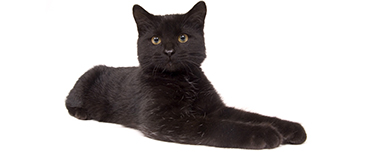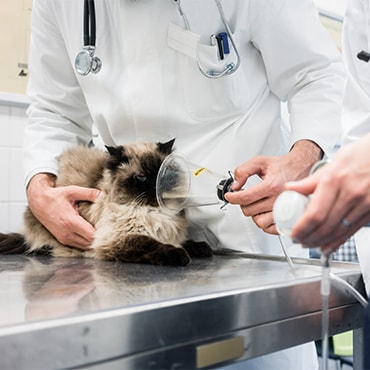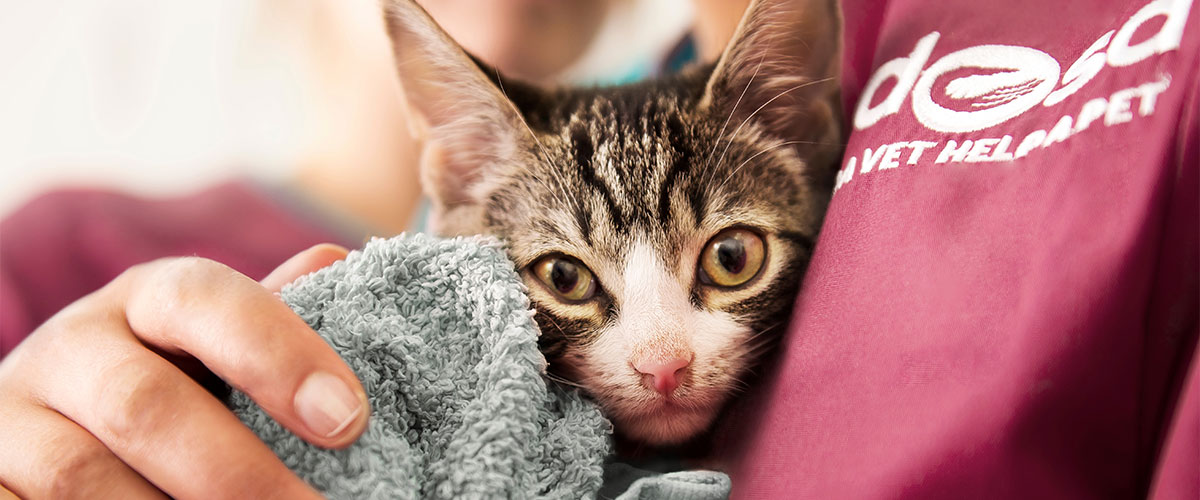Breathing problems in cats

Overview
- Generally, you shouldn't hear or see your cat breathing unless you look and listen very closely.
- If your cat has a breathing problem, you might notice them breathing loudly, quickly, coughing, taking small shallow breaths, or in very severe cases, mouth breathing (panting).
- Contact your vet straight away if your cat is struggling to breathe, mouth breathing, or has collapsed.
- Contact your vet for a check-up if your cat has mild signs of a breathing problem.
General information
As a rule, you shouldn’t be able to hear or see your cat breathing unless you look and listen very closely. If your cat’s breathing seems noisy, fast, or is causing their chest or belly to move a lot, this is often a sign of a problem. It’s also important to be aware that cats nearly always breathe through their nose, so if your cat is panting or breathing through their mouth, it’s a sign they are either extremely stressed, or really struggling to breathe.
If your cat is struggling to breathe, they might show the following signs:
- Heavy, noisy, fast or shallow breathing
- Panting/open mouth breathing
- Pale gums
- Collapse
- Sudden/unexplained death
Never ignore a breathing problem (especially mouth breathing), stay calm, keep your cat calm, and contact your vet straight away.
If your cat has a less serious breathing problem, you may notice symptoms such as:
- Coughing
- Sneezing
- A runny nose
- Weepy eyes
- Not eating
- Low energy
If you're unsure whether your cat has a breathing problem, or how quickly they need to be seen by a vet, try our symptom checker.

Causes of breathing problems in cats
There are quite a few different conditions that can cause breathing problems:
- Shock or stress
- Feline asthma
- Cat flu: and other respiratory infections
- Accidents and injuries: such as being hit by a car
- Heart problems
- Heat stroke
- Anaemia
- Certain cancers
- Flat-faced breeds - flat-faced breeds of cat, such as Persians, often have breathing problems due to the shape of their face and nose.
When to contact your vet
In many cases, you won’t see any symptoms of a breathing problem until it is quite serious, so it’s very important to get your cat checked if you notice any changes in their breathing. When transporting a cat with a breathing problem, it’s important to keep them calm because stress is likely to make the situation much worse.
- Contact your vet immediately if your cat is struggling to breathe, panting, or breathing with an open mouth.
- If your cat stops breathing, start CPR and contact your vet straight away.
- Never wait to see if things improve. The faster your cat is treated, the better their chance of survival.
Less urgent problems
If your cat has mild symptoms of a breathing problem but they aren't struggling to breathe, contact your vet for an appointment.
Consider insuring your cat as soon as you get them, before any signs of illness start. This will ensure you have all the support you need to care for them.
Published: July 2020
Did you find this page useful?
Tell us more
Please note, our vets and nurses are unable to respond to questions via this form. If you are concerned about your pet’s health, please contact your vet directly.
Thank you for your feedback
Want to hear more about PDSA and get pet care tips from our vet experts?
Sign up to our e-newsletter
Written by vets and vet nurses. This advice is for UK pets only. Illustrations by Samantha Elmhurst.

